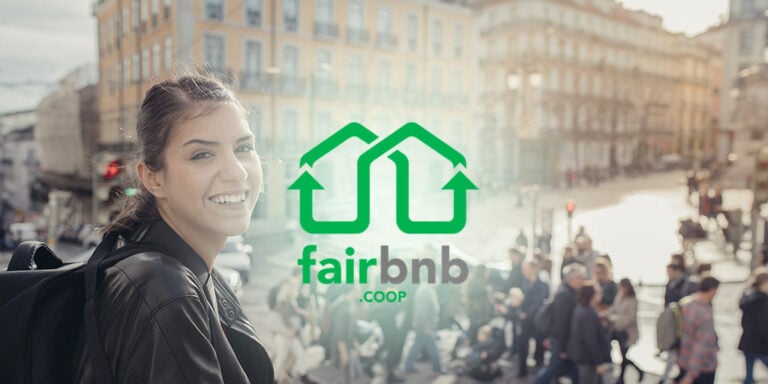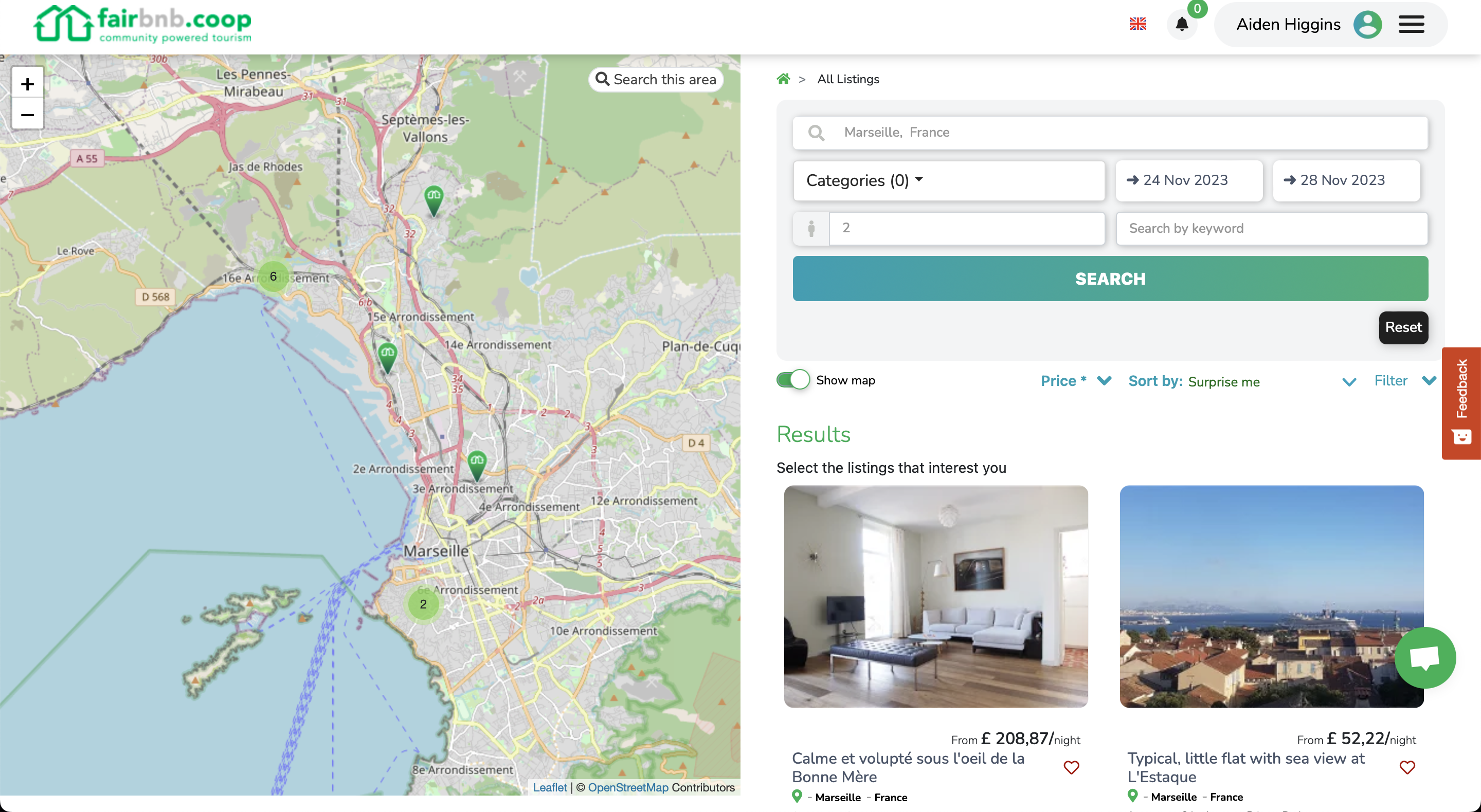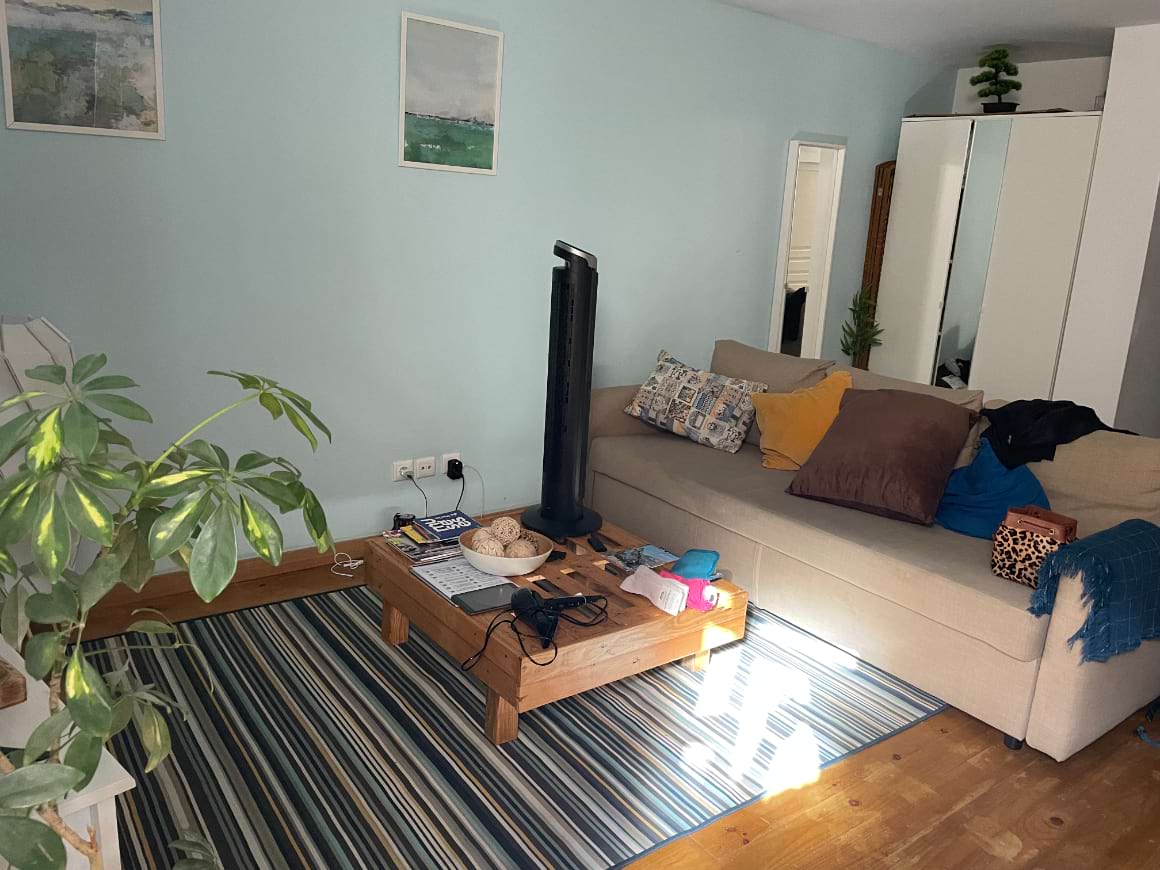The Broke Backpacker is supported by you. Clicking through our links may earn us a small affiliate commission, and that's what allows us to keep producing free content 🙂 Learn more.
Airbnb’s rise has been nothing short of revolutionary, transforming travel by offering unique stays in local homes around the world. It provided travellers with an unparalleled opportunity to immerse themselves in local cultures, often at a fraction of the cost of traditional hotel accommodations.
However, the ‘Airbnb effect’ has its downsides. Popular destinations began to feel the strain as rental prices soared and locals found themselves priced out of their own neighbourhoods. Alongside these socio-economic impacts, the platform faced criticism over a surge in scams and a perceived lack of support for both hosts and guests.
Amidst these challenges emerged Fairbnb.coop, an ethical alternative focused on sustainable and community-driven tourism. Where Airbnb became problematic, Fairbnb.coop aims to counteract that by working alongside locals to create a cooperative partnership that supports communities and promotes sustainable tourism.

The Broke Backpacker is supported by you. Clicking through our links may earn us a small affiliate commission, and that's what allows us to keep producing free content 🙂 Learn more.
What Is Fairbnb?
Founded in Italy, Fairbnb.coop is a response to the growing need for more ethical and sustainable travel options. Unlike its more famous counterpart, Fairbnb.coop operates on a cooperative model, emphasising local welfare, sustainable tourism, and transparent operations. The platform’s ethos centres around supporting local communities, promoting cultural exchange, and minimising the negative impacts of tourism.
Fairbnb.coop stands out from Airbnb in several key aspects, most notably in its commitment to ethical hosting and sustainable tourism practices.
Because of that, rather than in spite of it, that means there are significantly fewer users and hosts. Hosts are vetted to a much higher level and one of the criteria is that they don’t have a large portfolio of rental properties available. Instead, they insist hosts are real residents and they follow the local laws and rental policies.
The platform has roughly 15,000 registered users worldwide and operates in 10 countries and 40 regions/ cities across Europe including popular destinations like Barcelona, Paris, Rome, Venice, Amsterdam, London and Berlin.
Breakdown of Fairbnb

Fairbnb is what Airbnb should and could be if it changed one key principle that Fairbnb.coop lives and breathes by: people over profit. By fostering cultural exchanges, working alongside local authorities and only setting up camp in regions and cities where they are actually wanted, they work to not only actively improve the lives of locals, but to give travellers a much more authentic and meaningful experience.
Community-Centric Approach:
Fairbnb.coop’s primary focus is on community welfare. Its operations are designed to ensure that local communities benefit directly from tourism, rather than being sidelined.
One of the most important aspects of this is to both adhere to the local rules regarding rentals and also to ultimately make sure that the authorities and crucially the locals actually want them there. Their ultimate aim is to protect the communities in which they exist and in fact to go even further and to benefit them rather than cause harm.
They work with rather than against the local communities to make them an integral part of their business model.
Profit Sharing for Social Projects:
A notable feature of Fairbnb.coop is its practice of reinvesting a significant portion of its profits into local community projects. This can range from social housing initiatives to environmental efforts and cultural preservation.
By reinvesting 50% of their platform fee back into community social projects, they aim to create a “circular economy” by redistributing profits back into the community that generates them. They call this “community powered tourism” and we’re all about that. These projects are chosen by the communities themselves to decide where and how it would be best placed.
One of these is the Big Issue Foundation in the UK, a charity that supports the sellers of the magazine who are often homeless and face issues including dignity, income and purpose.

Sustainable and Ethical Tourism:
The platform champions sustainable tourism, aiming to reduce the adverse effects like gentrification and over-tourism that have been linked with platforms like Airbnb.
One of the main ways they do this is to insist that each host only has one property up for rental, not just on their platform, but across all other online holiday rentals. This means rather than properties being bought up and hoarded by hosts, which causes issues with the availability of residential accommodation, responsible renters are encouraged.
For the travellers themselves, this often means more opportunities to actually stay with locals within actual communities and not just rent an anonymous condo somewhere.
Another way that Fairbnb.coop tackles overtourism is to set up what they call “nodes”, these are a group of selected local residents that come together to decide how many properties and areas or city should and could sustain. Rather than one set number for each place or even type of place, it is worked out carefully by the people it will affect the most.
Transparent and Cooperative Model:
Operating as a cooperative, Fairbnb.coop prioritises transparency and fairness. It’s democratically governed by a diverse group of stakeholders, including employees, hosts, guests, and local community representatives.
They describe themselves as powered by “people, activists and organizations, not faceless investors”. In practice, this means that it is actually owned by the people who use it and are impacted by it such as the hosts and local business owners.
As a cooperative, they pride themselves on the fact that decisions are made collaboratively, involving many different people, viewpoints and relevant associations. They’re all about creating partnerships with communities to create a more resilient structure that ensures the money generated in that community stays there and isn’t funnelled off into some offshore account!
Selection of Hosts and Properties:
To align with its ethical stance, Fairbnb.coop maintains stringent criteria for its hosts and properties, ensuring compliance with local housing laws and regulations.
One of the most important aspects of their selection process is the “one host, one property” rule. This for us is super important because it avoids the pitfalls of this type of platform where investors create massive businesses out of housing. This often results in fueling a housing crisis for locals where they are priced out of buying or renting properties.
Another important factor in the application process is that all hosts adhere to all local laws and actively participate in a sustainable model of tourism. Rather than encouraging hosts to find loopholes and by past laws created to protect the local economy and housing market, Fairbnb.coop assists in helping hosts work with local authorities.
Focus on Authentic Experiences:
Fairbnb.coop promotes authentic local experiences, encouraging deeper cultural exchanges and fostering genuine connections with local communities.
Where other *cough* rental platforms have morphed into a place to find a flash apartment for the weekend or a random cottage in the countryside to get pissed in, Fairbnb.coop is still about staying with locals. In the early days, we’ve had some unforgettable experiences with “other” platforms and we’re excited to see a platform that actually prioritises and encourages that.
The “one host, one property” rule not only protects the property market, but it means that you’re much more likely to be actually staying with locals, in their home and their community. As a way to actually learn and interact with a destination rather than just visit, this is invaluable.
A homestay is our favourite way to have an authentic experience where you can really get under the surface of a place and we’ve made so many friends around the world this way. It’s not only enriching, but it’s bloody fun too!
Where Can I Use Fairbnb?

Fairbnb.coop started in Italy in 2016 but is expanding its reach globally. Beginning in Venice, the poster child city for the ills of the holiday rental industry, it inspired this revolutionary idea and platform.
The platform has been growing slowly and steadily since then, expanding into 10 countries across Europe. Its rise is admirable and respectable in that its desire to grow has been balanced with getting the right hosts, properties and sticking to the rules.
Of course, being its hub, Italy has the most properties and regions. For travellers interested in exploring Italy authentically and ethically, Fairbnb.coop is an excellent choice.
Other example destinations include Barcelona, London, Rome, Venice, Paris, Porto (where I used and loved it) and Berlin. At the moment the platform hasn’t expanded outside of Europe, but we are expecting big things.
Having said that, the nature of the platform at the moment does mean that options in each destination, even large cities like Paris, can be quite limited. Searching in London for next September for example only throws up two results (although London has JUST announced a plan to limit Airbnb’s presence in the city…). Also, by sticking to the rules, it means that certain destinations are just not possible to exist in.
Is Fairbnb As Good As Airbnb?

While Airbnb boasts a larger portfolio of properties, Fairbnb.coop’s focus on quality, community, and sustainability makes it a strong contender, especially for the ethically-minded traveller.
However the fact is that Airbnb has a LOT more properties. I also found that some Fairbnb hosts were not actually active and while properties were listed as available, they were not. I made one booking only to receive a full refund a few days later with no explanation. It could have left me in the lurch and I did end up having to hastily rush around to find another booking.
Our advice is to start booking well in advance of your stay and message hosts beforehand. That said, this also does happen on Airbnb from time to time and has happened to me and my mates a few times too.
It’s true that Fairbnb.coop is still growing and working through some early-stage challenges, but its potential is undeniable. If it can grow, in a sustainable way whilst retaining its ethics and ethos, this truly could revolutionise the travel industry and begin to really combat the blight of over-tourism on destinations the world over. Its also refreshing to use a platform which is not a hot bed of scams like Airbnb and booking are.
Final Thoughts on Fairbnb
Fairbnb.coop presents a compelling, ethical alternative to traditional homestay and rental platforms. Its focus on community welfare, sustainable tourism, and authentic local experiences sets it apart. While it may currently have fewer listings than Airbnb, its commitment to ethical practices and community support makes it a worthy option for travellers looking to make a positive impact.
So why don’t you explore what Fairbnb.coop has to offer? Sign up today and start planning your next travel adventure with a positive footprint.








